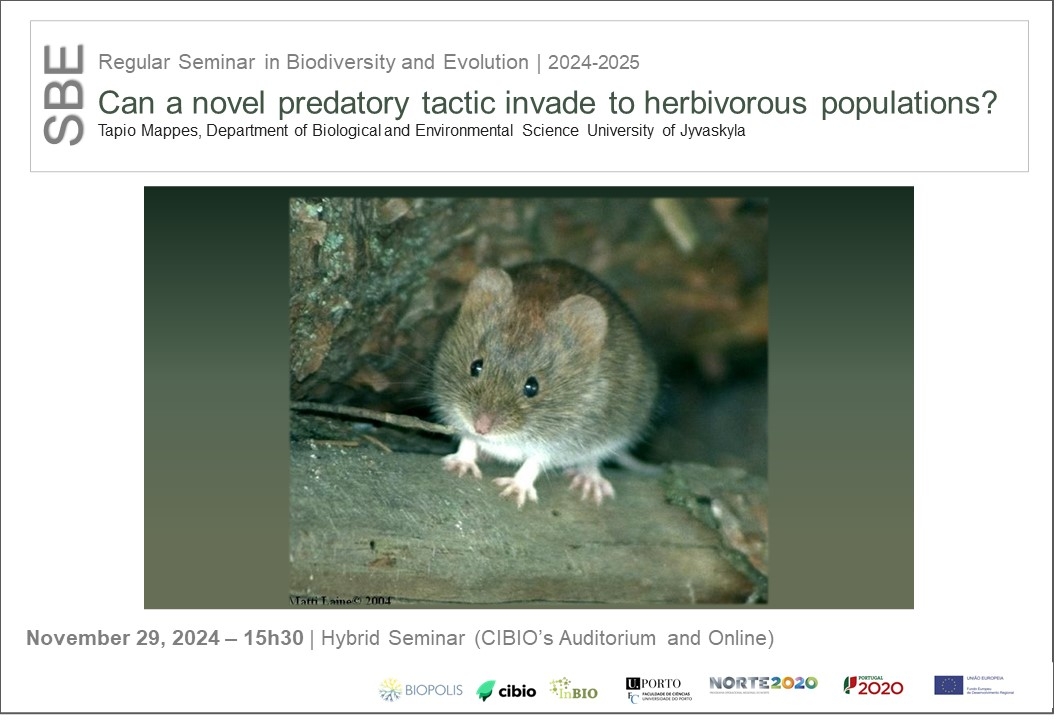Can a novel predatory tactic invade to herbivorous populations?
29 Nov 2024 - Tapio Mappes, Department of Biological and Environmental Science University of Jyvaskyla | 15h30 | Hybrid Seminar

REGULAR SEMINAR IN BIODIVERSITY AND EVOLUTION
In evolutionary history, predatory tactics have evolved numerous times within populations of herbivorous animals. Here we simulated the evolution of predatory tactics and tested whether a novel predatory tactic could be introduced into rodent populations with a predominantly plant-based diet. We utilized selection lines of the wild rodent species, the bank vole (Myodes glareolus), which had been selectively bred for predatory behavior, alongside unselected control lines. Our field experiment demonstrates that negative frequency-dependent (NFD) selection, which confers an advantage to a rare tactic, plays a pivotal role as an evolutionary mechanism. We also tested experimentally whether the costs of reproduction may determine invasion on predatory behaviour. We showed that both evolutionary mechanisms (NFD and reproductive costs) can facilitate the invasion of predatory tactics into populations. Additionally, our analysis of the reproductive success of females exhibiting different tactics suggests that NFD selection can support the stable coexistence of tactics within populations at a polymorphism ratio of 1:1. Our results provide novel evidence of the selective advantages of predatory behaviour, paving the way for future field studies to investigate the other behavioural or physiological costs and benefits associated with this widespread dietary strategy.
Prof. Mappes' research career has focused on experimental studies involving both wild animals and humans. His key achievements include investigating (i) evolutionary trade-offs, such as the balance between reproductive costs and the trade-off between offspring quantity and quality, (ii) the neurogenetic mechanisms underlying fitness, (iii) frequency-dependent and sexually antagonistic selection, (iv) the immunological and hormonal mechanisms in life-history evolution, (v) host-parasite interactions, and (vi) social evolution in humans. His primary research model is the bank vole (Myodes glareolus), selected for its ecological relevance and suitability for laboratory and field experiments. Prof. Mappes’ work is grounded in extensive expertise in experimentally quantifying the eco-evolutionary mechanisms of selection that maintain genetic variation and drive microevolution across various traits, including morphological, physiological, and life-history characteristics, within this species.
[Host: Zbyszek Boratynski, Biodiversity of Deserts and Arid Regions - BIODESERTS]